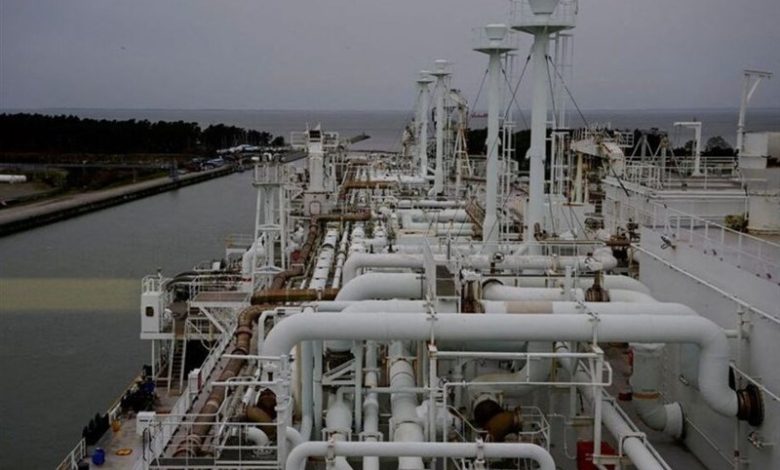Difficult gas years await Europe with the end of Russian gas shipments from Ukraine

| The Ukrainian government has decided to stop the transfer of Russian gas to Europe from 2025, which could be expensive for Europe as well as German consumers. |
According to the international group Tasnim news agency, the German magazine “Focus” wrote in an article: Ukraine It no longer wants to send Russian gas to Europe from 2025. As Europe’s gas market is highly interconnected, this could be costly for consumers. A year after Russia invaded Ukraine, Europe still depends on Moscow’s gas. This small village is one of the important poles of gas supply in Europe. From here, gas is pumped to Hungary, the Czech Republic, Slovakia, as well as Austria. Ukraine’s neighbors are especially dependent on Russia. Even in the second year of the war, on average, more than 60% of Europe’s natural gas imports came from Russia.
And now the Austrians must urgently look for alternatives, because from 2025 Ukraine will no longer want gas. natural to send to the West and Russia should no longer pay for transit to Ukraine for a long time. The contract between Ukraine and the Russian gas company Gazprom expires at the end of 2024. According to Kiev, Ukraine has only continued to deliver gas until now because countries like Austria are heavily dependent on Russian gas. Since the Russian invasion of Ukraine, Germany has also drastically reduced its gas imports from Russia. Nevertheless, consumers in this country can also feel the effects of this action of Ukraine.
Svetlana Iconikova, a professor of energy economics at the Technical University of Munich, says: the price of electricity and gas may increase in this situation. . The European energy market is highly networked. If there is a lack of cheap electricity from wind and sun, especially in the winter season, expensive gas power plants come into action. He says: If prices increase in one place in the European gas market, in many cases this will affect other countries as well. If our neighbor in Austria faces a gas shortage, our gas will also become more expensive. Of course, Cooper says that it is unlikely that Ukraine will close its gas tap in a year. Cooper said: “Ukraine is interested in not stopping deliveries from Russia to Austria on the way to its possible accession to the European Union.” He emphasized: Ukrainians do not want to disappoint their western partners. However, what such a gas deal with Ukraine might look like is still unclear.
Austrian energy supplier OMV has a contract with Gazprom until 2040 and must continue to pay for gas. The European Union has not yet sanctioned gas imports from Russia. OMV chairman Alfred Stern recently told Die Welt newspaper that buying Russian gas still makes sense. However, even the Austrian government does not know exactly what the OMV deal with the Russians will look like.
German energy scientist Svetlana I. Konikova worries that “between five and ten percent of Germany’s industrial production capacity could In this situation, permanently migrate abroad.
On the other hand, if the Russian gas transit contract expires, Germany could be considered as an important mediator, says Cooper, an energy expert. : Germany could send gas from its mobile LNG terminals or from Norway to countries like Austria in the future, so landlocked countries in southeastern Europe would benefit from Germany’s coastal connectivity.
But experts Environmentalists criticize the expansion of liquefied natural gas terminals, because Germany remains dependent on fossil energy sources.
According to Cooper, gas prices will probably not be as cheap as they were before the Ukraine war in the next few years. See, because Germany and Europe now have to buy from the global market. China and Japan have already secured a lot of gas there. The USA and Qatar want to send more LNG to Europe in the future.
But compared to the winters of 2018 to 2021 – that is, before the start of the Russian war against Ukraine and the end of Russian gas delivery – consumption Gas fell by 13.9 percent in the country. According to the report, German industry has since saved 12.8 percent and households and businesses have saved 15.3 percent.
Meanwhile, Klaus Müller, head of the German Federal Gas Network Agency. More optimistic than last year, he said: “We see gas consumption increasing as it gets colder. “But a few cold days don’t worry us.” Storage facilities are about 90 percent full, and Germany is importing from reliable suppliers. According to him, gas shortage is unlikely this winter. However, Muller asked citizens and companies to be economical. The head of the network agency said: We recommend that people use gas consciously and think carefully about how much they can save. He emphasized: if you use less gas, you can save a lot of money.
end of message/
| Publisher | Tasnim News |


